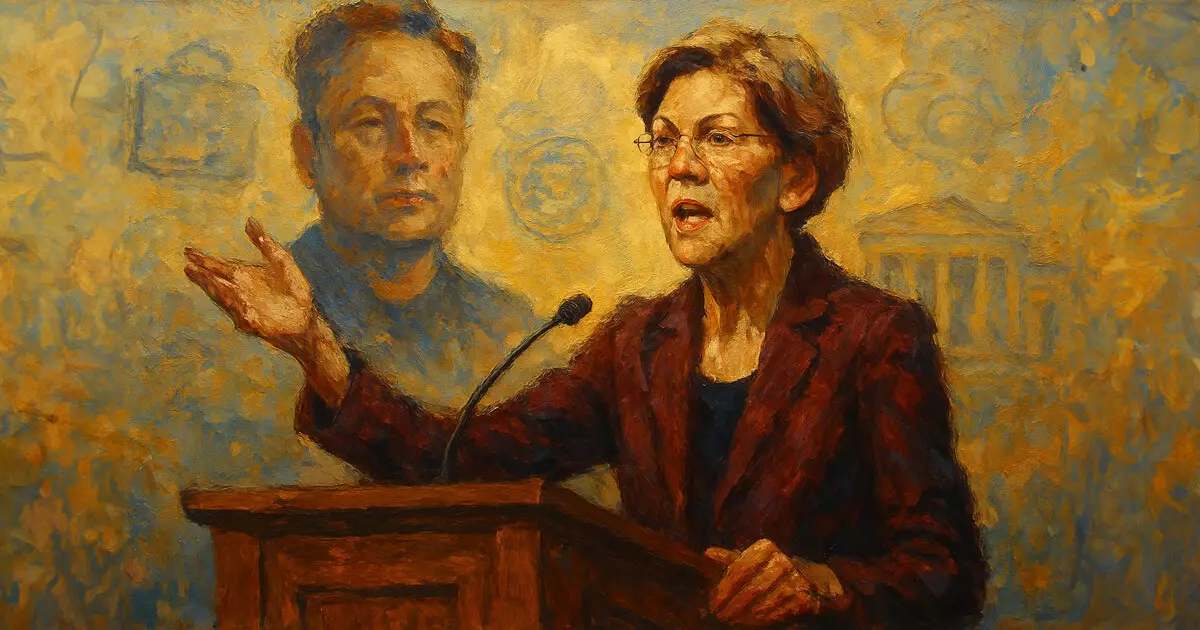In the delicate interplay between public service and private interests, the introduction of the Special Government Employee Ethics Enforcement and Reform (SEER) Act marks a pivotal step towards accountability. Spearheaded by Senator Elizabeth Warren and a coalition of supportive lawmakers, this legislation aims to redefine the ethical landscape of advisory roles within the federal government, particularly concerning individuals with significant ties to private sectors, like Elon Musk. With SGEs operating under a lax regime that permits them to serve limited days while potentially promoting their own business interests, the necessity for reform is glaring.
Who Are the Special Government Employees?
The term “Special Government Employee” encompasses a broad spectrum of individuals who contribute to government advisory roles while maintaining their links to the private sector. These part-time workers, such as Musk and crypto advisor David Sacks, can serve up to 130 days a year without fully relinquishing their corporate affiliations. This flexible arrangement allows them to effectively navigate dual loyalties, a troubling scenario that raises glaring ethical concerns. Should we permit individuals who are financially benefiting from government contracts to simultaneously influence government decisions? The SEER Act seeks to impose stricter regulations to challenge this blurred line of ethics.
Ethics Over Influence: The Essence of SEER
The essence of the SEER Act lies in its ambition to elevate the standards of ethics among those who serve in these dual capacities. The bill includes stipulations such as mandatory transparency and accountability measures post the 61st day of an SGE’s service. The inherent flaws in allowing high-net-worth individuals like Musk to wield influence over government contracts while evading detailed financial disclosures highlight a systemic conflict of interest that could skew priorities wildly towards corporate interests rather than public welfare.
A Coalition for Change: Unprecedented Support
Admirably, the SEER Act has garnered backing from an impressive alliance of advocacy groups dedicated to government transparency such as Public Citizen and CREW. These organizations stress the crucial role of ethical governance in preserving democracy and eradicating the insidious corrosion of corporate influence in public policy. The demands for heightened scrutiny of conflicts of interest resonate broadly, emphasizing that government cannot operate effectively if its advisors are mired in ethical ambiguity.
The Case for Deeper Transparency
It is striking to observe how the proposed regulations extend to imposing stricter conflict-of-interest rules. Future SGEs with ties to companies that hold government contracts would face prohibition from interacting with the regulatory agencies governing those firms. This development not only intends to curb unethical practices but also aims at restoring public trust in a government that seems increasingly beholden to corporate power players. By mandating that all conflict-of-interest waivers be publicly accessible and overseen by the Office of Government Ethics, a more transparent governmental framework stands to be established — one that could potentially empower citizens rather than further disenfranchising them.
The SEER Act does not just serve as a legislative proposal; it embodies a compelling initiative to cleanse the corridors of power from nepotism cloaked in the guise of public service. As citizens become more aware of the implications surrounding SGEs, the demand for transparency and accountability will only grow stronger, signaling a robust challenge to entrenched political norms.
















Leave a Reply